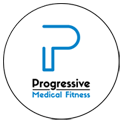
The Gray Institute describes the technique of a physical therapist applying their hands to different bones of the body, in order to guide a motion at a specific joint during a functional movement, as Functional Manual Reaction™. FMR is a versatile manual therapy that can be used for movement assessment, functional training, and rehabilitation.
FMR is an active technique performed with the client, while they are in motion. This technique can be used to ease areas of restricted movement and restore the proper movement of bones during a particular task. For example, let’s consider the task of loading a plate into the dishwasher. The reaching hand creates a chain reaction of movement in multiple joints of the body, such as at the shoulder, spine, hips, knees and ankles. A physical therapist can use FMR on any of the bones to guide the motions of each joint to complete the activity efficiently and without pain or injury.
FMR is also beneficial in enhancing muscle function and muscle recruitment. Many movements, particularly when practicing a sport, involve a loading phase before the exploding phase. Picture a golf swing, a high jump, or a pitcher throwing a ball. This hands-on therapy technique can be used to increase loading into a position, which improves exploding out of a position, thus making movement easier and more efficient.
Another benefit of FMR is the increase to proprioceptive input. Proprioceptors are receptors in the body that sense movement and position in space. When these receptors are stimulated, they activate the muscle’s reaction. More proprioceptors get stimulated when an activity is performed in an upright position utilizing gravity and while participating in the actual task. This results in improved muscle recruitment and training for the muscle.
The manual therapies of Functional Manual Reaction and Proprioceptive Neuromuscular Facilitation (PNF) share many similarities. PNF and FMR both harness the three-dimensional nature of human movement, the role of hand contact in guiding bone movement, and the capacity to enhance muscle activation. For more information, contact the highly trained physical therapy team at Progressive Medical Fitness.
